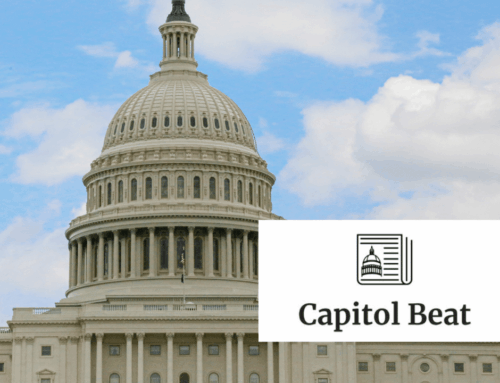This op-ed by Taxpayers for Common Sense President, Ryan Alexander, was first published in Morning Consult on February 19, 2019
President Donald Trump’s tariff-centric trade war has demonstrated how invisible and incomprehensible the global economy’s complicated supply chain can be.
The misunderstandings emerge in comments such as: “Don’t like the higher prices? Don’t buy it.” “Make and buy more American goods.” “Make them pay. They’ve been cheating us for years.” In his State of the Union address, the president fed the misconceptions, starting with: “We recently imposed tariffs on $250 billion of Chinese goods — and now our Treasury is receiving billions and billions of dollars” and “bringing back manufacturing jobs in even greater numbers.”
First, governments don’t pay tariffs — people do. The Chinese government isn’t paying. But from aircraft parts to X-ray tubes, American consumers and corporations now pay 25 percent more for some 7,000 Chinese imports.
Every tariff dollar entering the Treasury comes from American businesses and consumers. As for bringing back manufacturing jobs, making and buying American may not be an immediate option, not even for higher prices, if entire domestic manufacturing ecosystems no longer exist.
The global economy is dynamic. The freer that markets are, the more businesses specialize for profit. Which means they will stop mass producing one product when better profits lie elsewhere.
The answer isn’t to resuscitate the moribund industry. It’s not advisable, or even possible, to attain self-sufficiency in manufacturing every item or raw material. Economies change, and people need the tools and opportunities to capitalize on changes.
Finally, “temporary pain for long-term gain” is a fallacy. The president may consider the North American Free Trade Agreement a catastrophe, but the only trade deal he has announced, the U.S.-Mexico-Canada Agreement, is essentially NAFTA 2.0 and increasingly unlikely to be adopted by a polarized Congress.
Negotiations with China have made no measurable progress. The European Union and the United States are at loggerheads. The Trans-Pacific Partnership, which we abandoned, has moved on without us, and now American dairy farmers and others will lose market share to the benefit of Australia and New Zealand.
Markets do not open and close like a spigot. It takes years to develop relationships, supply chains, inventory and a commercial presence — all of which have to be reliable in order for a farmer in the Midwest to invest in a crop that he assumes China will buy later. Interruptions arbitrarily imposed by administrations, which are temporary, shake confidence, which is long-lasting.
Now, the bigger problem. The general public should not be expected to understand intricacies of global trade. Their leaders, however, should. But Congress, with the constitutional duty “to regulate commerce with foreign nations,” has been negligent.
The upside is new opportunity with a new Congress. Lawmakers on both sides of the aisle need to work at dismantling unnecessary, costly barriers to having people, industries and communities prosper on their own.
Absolutely yes, we must tackle distortions and barriers (both foreign and domestic). But that should happen multilaterally and through long-established and effective tactics and institutions. We win 86 percent of the time in the international arena when we look to enforce rules rather than impose barriers to trade.
At Taxpayers for Common Sense, we support federal safety nets, as long as tax dollars are invested wisely and efficiently. Congress needs to do what is right, rather than simply rubber-stamp winners and losers picked through political muscle — and nostalgia. That sometimes means making tough decisions, and leading, rather than insulating people and industries from market realities — which can take away from resources that would help invest in new opportunities.
Today’s horse-and-buggy industries are poorly served by delaying the inevitable. And putting Washington’s thumb on the scale does not help anyone innovate or come up with market responsive solutions.










